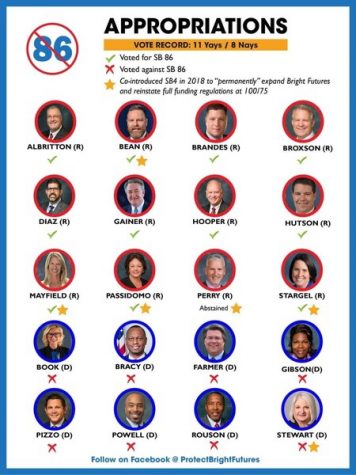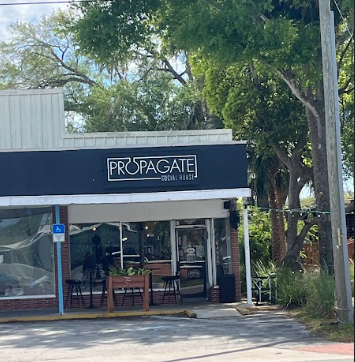Bright Futures Scholarships Aren’t Looking Too Bright
Scholarships have allowed students from around the world to get an opportunity to earn a proper education without being swamped in loans and debt before the age of 20. The Florida Bright Future scholarship is just one of many scholarships that have helped a numerous students earn a 4-year college education with little to no pay. But as of recently, there have been discussions about possible alterations to the scholarship by the Florida Senate. These changes could affect the futures of students enrolling in Florida schools, and they could even affect yours.

The Senate has recently proposed a rewrite of the Bright Futures Scholarship bill and received tons of backlash for it. In their rewrite, they suggested installing a list of majors that were deemed efficient in directly leading to jobs like business and finance. The senate also discussed changing the amount of funding for each scholarship instead of what the scholarship currently provides, which is 75% or 100%. The percentage covered by the Bright Future Scholarship would be adjusted depending on your previous “college-like” classes such as AP and Dual Enrollment. Florida scholars decided to take a stand against these propositions and have created many different petitions with an overwhelming amount of signatures as well as letters and websites informing students that Bright Futures is endangered.

The alterations to the Bright Futures Scholarship have become quite controversial over the past few weeks. Students and legislators have come together to work against the approval of the strike-all amendment, seeing that the new adjustments have the possibility to tarnish students’ futures and leave them in debt. In response to the controversy, the Senate has removed one amendment that required students to choose a particular degree however, they have also removed language that guarantees the 75% and or 100% funding. According to ABC 7 (or mysuncoast.com), the Florida state senator, Dennis Baxley, came out with a statement on March 22 which read, “Based on your feedback, and with that goal in mind, I have filed an amendment that represents a concrete step forward in this discussion, while at the same time preserving the merit-based financial aid benefits our students earned in high school, regardless of which undergraduate path the student chooses.”

Since the revisions to the scholarship will primarily affect students who are hoping to perform at the college level without racking up debt, The Blue and White chose to interview a few people who have been following the bill progress. One of these people was Apopka’s very own future advisor, Ms. Roberts. Ms. Roberts believes now that many of the controversial revisions were removed that students will be less affected than if the revisions were passed. She also discussed how as a “psychology major I probably would not have received funding. I think there is a lot of worth to all majors and legislators should not be the ones to determine which majors are more important than others.” James Henderson, an Apopka alumni as well as a college student partially funded by Bright Futures, also expressed his opinions on the proposed changes. He said, “These changes will severely limit the number of kids entering stem fields or on the pre med track and push more kids into business and finance.” James acknowledged how Bright Futures helped him especially because “I didn’t come from much money.” He believes that this new system would be “unfair” and that college students who have worked to earn a scholarship “should be able to study for what they want to do in life, as those that came before them have.”
The Bright Future Scholarship has helped so many students become successful in life without living most of it in loans and debt. The rewrite of the bill will be presented to the senate on Wednesday, March 31, 2021. This scholarship has been proficient without these new accommodations, so why the need to fix something that has yet to be broken?

–As of today the rewrite of the Bright Futures Bill was passed with an 11-8 vote, all 11 being Republicans and all 8 being Democrats.





